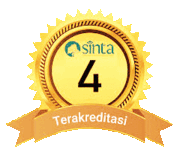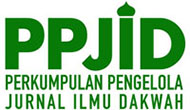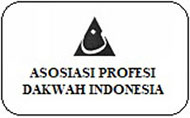Zakat dan Halal: Pengaruh Pivilese Praktik Keagamaan Dalam Regulasi Pembangunan di Indonesia
Abstract
Tulisan ini membahas tentang pengaruh zakat dan halal yang merupakan privilese praktik keagamaan dalam regulasi pemerintah terhadap meningkatkan ekonomi negara dan kesejahteraan masyarakat. Secara metodologis, kajian ini menggunakan pendekatan yuridis normatif dengan jenis penelitian deskriptif kualitatif. Adapun data dikumpulkan melalui wawancara dan studi kepustakaan. Kemudian dianalisis dan ditarik suatu kesimpulan. Hasil studi menunjukkan bahwa pemerintah memobilisasi fungsi kolektifitas muslim dalam tindakan keagamaan dan praktik kehidupan sehari-hari melalui berbagai kebijakan yang berhubungan dengan norma agama, seperti dua kebijakan yang telah dimunculkan oleh pemerintah terkait pengaturan zakat dan regulasi halal. Mobilisasi tersebut bertujuan untuk meningkatkan pembangunan ekonomi dan kesejahteraan masyarakat.
Keywords
Full Text:
PDFReferences
Bush Robin, and Feener, R. Michael, Religion and the Politics of Development, (New York: Palgrave Macmillan, 2015), 35-60.
Bush, Robin, “Regional Sharia Regulations in Indonesia: Anomaly or Symptom?”, dalam Greg Fealy and Sally White, (Eds.) Expressing Islam: Religious Life and Politics in Indonesia, (Singapore: Institute of Southeast Asian Studies, 2008), 174-191.
Clarke, Matthew, “Islamic International Aid Flows for Poverty Alleviation”, dalam Matthew Clarke and David Tittensor, Islam and Development, (England: Ashgate Publishing, 2014), 51-68.
Ebaugh, Helen Rose, ‘‘Presidential Address 2001, Return of the Sacred: Reintegrating Religion in the Social Sciences’’, Journal for the Scientific Study of Religion, 41/3, (2002), 385-395.
Fauzia, Amelia, Faith and the State: the History of Islamic Philanthropy in Indonesia, Disertasi (Melbourne: The Asia Institute, The University of Melbourne, 2008).
Fischer, Johan, The Halal Frontier Muslim Consumers in a Globalized Market, (New York: Palgrave Macmillan, 2011), 43.
Fischer, Johan, “Halal, Haram, or What?: Creating Muslim Space in London, dalam dalam Johanna Pink, Muslim Societies in the Age of Mass Consumption: Politics, Culture and Identity between the Local and the Global, (Cambridge: Cambridge Scholars Publishing, 2009), 3-22.
Gabdrakhmanov, Biktimirov, Rozhko, dan Khafizova, “Problems Of Development Of Halal Tourism In Russia”, Journal of Organizational Culture, Communications and Conflict, Vol 20, No 2, (2016), 88-93.
Grondona, Mariano, ‘‘A Cultural Typology of Economic Development’’, dalam L. E. Harrison and S. P. Huntington, Culture Matters: How Values Shape Human Progress, (New York: Basic Books, 2000), 43-58.
Hervieu-Le´ger, Danièle, ‘‘Individualism, the Validation of Faith and the Social Nature of Religion in Modernity’’ dalam Richard K. Fenn, The Blackwell Companion to Sociology of Religion, (Oxford: Blackwell, 2003), 160-172.
Ichwan, Moch. Nur, “Official Reform of Islam: State Islam and the Ministry of Religious Affairs in Contemporary Indonesia, 1966-2004”, Dissertation, (Universiteit van Tilburg, 2005).12.
Jeffrey, Haynes, ‘‘Religion’’, dalam L. Gearon, Human Rights and Religion: A Reader, (Brighton: University of Sussex Press, 2002), 17-29.
Johnston, Douglas, ‘‘Religion, Culture and Globalization’’ dalam R. L. Kugler and E. L. Frost, The Global Century: Globalization and National Security, (Washington: National Defense University Press, 2001), 7.
Keyman, Fuad, “Modernity, Secularism and Islam The Case of Turkey”, Theory, Culture & Society, Vol. 24 No 2 (2007), 215-234.
Latief, Hilman, Politik Filantropi Islam di Indonesia: Negara, Pasar dan Masyarakat Sipil, (Yogyakarta: Ombak, 2017), 13.
Marshall, Katherine, “Development and Religion: A Different Lens on Development Debates”, Peabody Journal of Education, Vol. 76, No. 3/4, Global Issues in Education (2001), 339-375.
Polanyi, The Great Transformation: The Political and Economic Origins of Our Time, (Boston, MA: Beacon Press, 1994), 85.
Salemink, Oscar, “The Furification, Sacralisation and Instrumentalisation of Development”, dalam Philip Fountain, Robin Bush and R. Michael Feener, Religion and the Politics of Development, (New York: Palgrave Macmillan, 2015), 35-60.
Selinger, Leah, “The Forgotten Factor: The Uneasy Relationship between Religion and Development”, Social Compass, 51/4, (2004), 523-543.
Scott M, Thomas, ‘‘Taking Religious and Cultural Pluralism Seriously: The Global Resurgence of Religion and the Transformation of International Society’’, Millennium: Journal of International Studies, 29/3, (2000), 815-841.
Thohari, Hajriyanto Y, Islam, Urusan Kemanusiaan dan Kebangsaan, dalam Hilman Ltief dan Zezen Zaenal Mutaqin, Ilam dan Urusan Kemanusiaan: Konflik, Perdamaian dan Filantropi, (Jakarta: Serambi Ilmu Semesta, 2015)
Turner, Bryan S, Religion and Modern Society: Citizenship, Secularisation and the State, (New York: Cambridge University Press, 2011), 271-297.
Turner, Bryan S, Islam, “Public Religion and Secularization Debate”, dalam Gabriele Marranci, Muslim Societies and the Challege of Secularization, (New York: Springer, 2010), 21.
Wulansari , Sintha Dwi dan Setiawan , Achma Hendra, Analisis Peranan Dana Zakat Produktif Terhadap Perkembangan Usaha Mikro Mustahik (Penerima Zakat), Diponegoro Journal Of Economics, Volume 3, Nomor 1, (2014), 1-15.
Daftar Wawancara
Aziz Muslim, selaku amil pada LAZ UIN Sunan Kalijaga.
Khuriati, selaku Kepala Sekolah TK Harapan Aisyah sebagai salah satu Muzakki zakat profesi.
Sakinah, selaku guru matematika SMPN 2 Kuok sebagai salah satu Muzakki zakat profesi.
Satrio, admin akun instagram Halalexpo-id.
Website
VOA-Islam.com, Patut Ditiru, Karyawan BRI Rela Dipotong Gajinya 2,5% untuk Berinfak”,http://www.voaislam.com/read/indonesiana/2013/04/30/24282/patut-ditiru-karyawan-bri-rela-dipotong-gajinya-25-untuk berinfak/#sthash.DvflG2dl.dpbs, akses pada Selasa, 30 April 2013.
Halalexpo-id, Instagram, Postingan 27 Maret 2019
DOI: http://dx.doi.org/10.24014/idarotuna.v3i2.11813
Refbacks
- There are currently no refbacks.

This work is licensed under a Creative Commons Attribution 4.0 International License.
Indexed by:
Editorial Office:
2nd Floor, Building of Da'wah and Communication Faculty, UIN Sultan Syarif Kasim Riau. Jl. HR Soebrantas Km 15, Simpangbaru, Tampan, Pekanbaru
Email : jurnal.idarotuna@uin-suska.ac.id

Jurnal Idarotuna is licensed under a Creative Commons Attribution-ShareAlike 4.0 International License.













